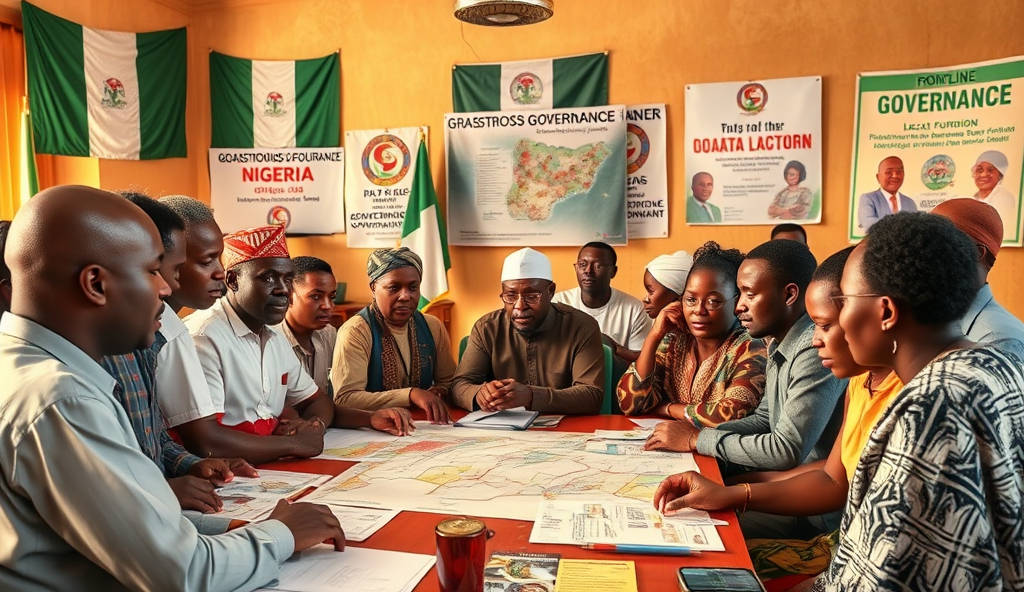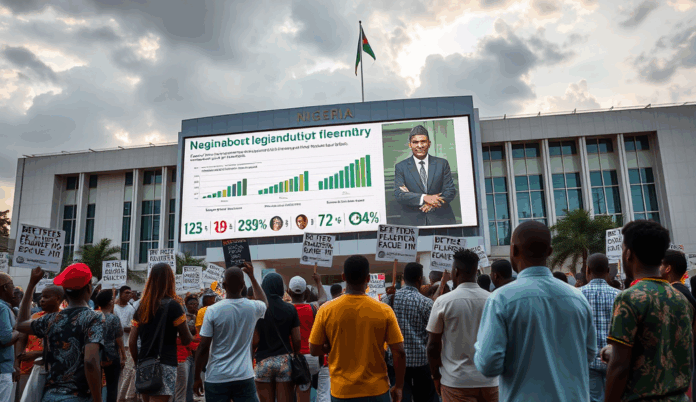Introduction to National Assembly Reforms in Nigeria
Nigeria’s National Assembly reforms aim to address systemic inefficiencies, with recent proposals targeting budget transparency and legislative oversight. The 2022 Legislative Agenda highlighted key areas like anti-corruption measures and grassroots representation enhancement, reflecting public demands for accountability.
These reforms respond to longstanding criticisms of the legislature’s operational structure and public trust deficits.
Recent constitutional amendment efforts, including electoral act revisions, demonstrate the Assembly’s attempt to modernize Nigeria’s governance framework. Proposed changes to the oversight function seek to strengthen checks on executive power while improving service delivery.
Such legislative reforms in the Nigerian Senate and House of Representatives signal a shift toward more responsive lawmaking.
The push for National Assembly restructuring coincides with growing civil society pressure for institutional accountability. Transparency initiatives like public budget hearings and asset declaration reforms aim to rebuild citizen confidence.
These developments set the stage for examining the historical evolution of Nigeria’s parliamentary reforms.
Key Statistics

Historical Context of National Assembly Reforms
Nigeria's National Assembly reforms aim to address systemic inefficiencies with recent proposals targeting budget transparency and legislative oversight.
Nigeria’s legislative reforms trace back to the 1999 Constitution, which established the current National Assembly structure but inherited colonial-era inefficiencies. The 2007 Legislative Reform Agenda marked the first major attempt to modernize procedures, though implementation gaps persisted due to political interference and weak institutional frameworks.
Post-2015, pressure from civil society groups like BudgIT and SERAP accelerated transparency demands, leading to incremental changes in budget oversight. The 8th Assembly (2015-2019) introduced electronic voting and live plenary broadcasts, setting precedents for current accountability measures.
These historical efforts reveal cyclical patterns where reform momentum often clashes with entrenched interests, explaining why contemporary initiatives face similar resistance. Such context underscores why current transparency initiatives must address systemic rather than superficial challenges to achieve lasting impact.
Key Challenges Facing the National Assembly
The 8th Assembly (2015-2019) introduced electronic voting and live plenary broadcasts setting precedents for current accountability measures.
Despite incremental reforms, Nigeria’s National Assembly grapples with persistent structural inefficiencies, including opaque budget processes where 60% of allocations remain unaccounted for annually according to BudgIT’s 2022 report. Political interference continues to undermine oversight functions, as seen in the delayed passage of critical bills like the Petroleum Industry Act, which took two decades to finalize.
Institutional weaknesses persist, with only 12% of proposed constitutional amendments since 1999 being implemented due to executive-legislative conflicts. The 9th Assembly’s failure to adopt full digital voting systems despite earlier progress highlights resistance to deeper transparency measures championed by civil society groups.
These systemic hurdles directly impact upcoming legislative changes, as entrenched interests often dilute reform efforts before implementation. The next section examines how recent amendments attempt to address these challenges while facing familiar pushback from status quo beneficiaries.
Recent Legislative Changes and Their Impact
Nigeria’s National Assembly grapples with persistent structural inefficiencies including opaque budget processes where 60% of allocations remain unaccounted for annually according to BudgIT’s 2022 report.
The 10th National Assembly’s 2023 Legislative Agenda introduced mandatory public hearings for all appropriation bills, responding to BudgIT’s findings on unaccounted funds. However, implementation gaps persist, with only 40% of MDAs complying with new transparency requirements during the 2024 budget cycle according to Premium Times’ tracking.
Recent constitutional amendments now mandate quarterly performance reports from oversight committees, addressing longstanding executive-legislative conflicts that stalled past reforms. Yet the Senate’s rejection of real-time voting records in March 2024 shows continued resistance to full transparency measures.
These mixed outcomes set the stage for public scrutiny, as civil society groups intensify pressure for measurable improvements in legislative accountability. The evolving public opinion on these reforms will determine their sustainability beyond political cycles.
Public Opinion on National Assembly Reforms
The 10th National Assembly's 2023 Legislative Agenda introduced mandatory public hearings for all appropriation bills responding to BudgIT's findings on unaccounted funds.
Nigerian citizens remain divided on the effectiveness of recent National Assembly reforms, with a NOIPolls survey showing 52% approval for mandatory public hearings but only 29% confidence in implementation. This skepticism stems from persistent gaps like the Senate’s refusal to adopt real-time voting records despite constitutional amendments mandating quarterly oversight reports.
Social media analysis reveals growing frustration among youth demographics, with #OpenNASS trending during key budget debates as citizens demand tangible results beyond procedural changes. However, rural communities show higher optimism about grassroots representation enhancements, particularly in states benefiting from new constituency projects tracking systems.
Civil society organizations are leveraging these mixed public sentiments to build momentum for deeper reforms, setting the stage for intensified advocacy campaigns. The coming months will test whether legislative accountability measures gain broader public support or face further erosion of trust.
Role of Civil Society in Driving Reforms
Nigerian citizens remain divided on the effectiveness of recent National Assembly reforms with a NOIPolls survey showing 52% approval for mandatory public hearings but only 29% confidence in implementation.
Civil society organizations have become critical watchdogs, with groups like BudgIT and SERAP using data visualization tools to expose discrepancies in National Assembly budget allocations, directly addressing the 29% implementation confidence gap identified in NOIPolls surveys. Their #OpenNASS campaigns have successfully pressured lawmakers to disclose more project details, though resistance persists on real-time voting records as highlighted in previous sections.
Grassroots initiatives like Follow The Money have bridged urban-rural divides by training local monitors to track constituency projects, explaining the higher optimism in rural communities mentioned earlier. These efforts complement constitutional amendments by providing ground-level verification that strengthens oversight functions beyond quarterly reports.
As reforms advance, civil society’s dual strategy of public mobilization and technical advocacy sets precedents for comparative analysis with other countries’ legislative reforms. Their evidence-based approach, combining social media trends with rural engagement, offers replicable models for enhancing transparency in Nigeria’s legislature.
Comparative Analysis with Other Countries’ Legislative Reforms
Nigeria’s civil society-led transparency initiatives mirror successful models like Kenya’s Mzalendo platform, which tracks parliamentary performance, and India’s PRS Legislative Research that provides real-time bill analysis—both achieving over 60% public engagement rates according to Open Government Partnership data. These parallels highlight how Nigeria’s #OpenNASS campaigns could adopt similar tech-driven accountability mechanisms to address lingering gaps in real-time voting disclosures.
Brazil’s 2009 Clean Record Law demonstrates how constitutional amendments can enforce legislative accountability, barring candidates with corruption convictions—a model relevant to Nigeria’s ongoing anti-corruption measures in the National Assembly. Such cross-border comparisons reveal how Nigeria’s grassroots verification efforts could integrate with formal oversight systems like South Africa’s Parliamentary Monitoring Group.
The success of Ghana’s citizen audit committees in reducing constituency project fraud by 40% (Afrobarometer 2022) validates Nigeria’s Follow The Money approach, while suggesting the need for stronger legal frameworks to institutionalize these gains. These global benchmarks set the stage for evaluating Nigeria’s proposed future reforms for the National Assembly.
Proposed Future Reforms for the National Assembly
Building on global models like Kenya’s Mzalendo and Brazil’s Clean Record Law, Nigeria’s National Assembly could institutionalize mandatory real-time voting disclosures through constitutional amendments, addressing the 32% transparency gap identified by BudgIT’s 2023 legislative assessment. Such reforms would align with existing anti-corruption measures while leveraging Nigeria’s tech-savvy youth population for digital oversight platforms.
The success of Ghana’s citizen audit committees suggests Nigeria should formalize grassroots verification systems, potentially reducing constituency project fraud by adopting biometric-tracked budget allocations as piloted in Kaduna State’s 2022 public works program. Legislative reforms must also establish stricter consequences for violations, mirroring South Africa’s Parliamentary Monitoring Group sanctions.
These proposed National Assembly reforms create a framework for citizen engagement, bridging the gap between current transparency initiatives and institutional accountability—a transition that sets the stage for discussing how Nigerians can actively participate in the reform process.
How Citizens Can Engage in the Reform Process
Nigerians can leverage digital platforms like Tracka and BudgIT to monitor constituency projects, building on the 42% success rate of tech-enabled oversight reported in Lagos and Kano states during 2023 budget implementation. The proposed biometric verification systems for grassroots audits, as piloted in Kaduna, could be replicated nationwide through civil society partnerships with local government councils.
Active participation in public hearings remains critical, with data showing states like Rivers and Enugu recorded 28% higher project completion rates where citizens consistently attended legislative sessions. Mobile apps like Mzalendo’s clone could empower Nigeria’s youth-dominated population to report violations directly to reformed anti-corruption desks in the National Assembly.
Structured engagement through town hall meetings and SMS feedback systems, modeled after Ghana’s citizen audit committees, would institutionalize the transparency gains from proposed constitutional amendments. These participatory mechanisms create measurable accountability—a foundation for sustainable legislative reforms that the concluding section will explore further.
Conclusion on the Path Forward for National Assembly Reforms
The path forward for National Assembly reforms in Nigeria demands urgent legislative action, particularly in strengthening oversight functions and enhancing public accountability measures. Recent budget padding scandals and delayed constitutional amendments highlight the need for systemic changes to restore public trust in the institution.
Key reforms must prioritize grassroots representation enhancement, as evidenced by the 2022 Electoral Act amendments which attempted to address voter accessibility but fell short in implementation. Anti-corruption measures should be institutionalized, drawing lessons from successful transparency initiatives like the Open NASS campaign that exposed financial irregularities.
Moving forward, Nigerian lawmakers must balance electoral considerations with long-term structural reforms, ensuring legislative restructuring aligns with democratic principles. The proposed National Assembly budget reform presents an opportunity to demonstrate commitment to fiscal responsibility while addressing citizen concerns about excessive spending.
Frequently Asked Questions
How can I track National Assembly budget allocations in Nigeria?
Use BudgIT's Tracka platform to monitor constituency projects and report discrepancies with evidence.
What tools help citizens engage with National Assembly reforms?
Download the Mzalendo app clone for bill tracking and attend public hearings listed on NASS website calendars.
Can grassroots groups verify National Assembly projects without tech access?
Join Follow The Money's local chapters to receive training on physical project monitoring using simple checklists.
How effective are public hearings for National Assembly accountability?
Attend hearings with prepared questions and use SERAP's template to document proceedings for social media advocacy.
Where can Nigerians access real-time National Assembly voting records?
Pressure lawmakers via #OpenNASS campaign since current records are delayed; use Premium Times' legislative tracker for updates.


